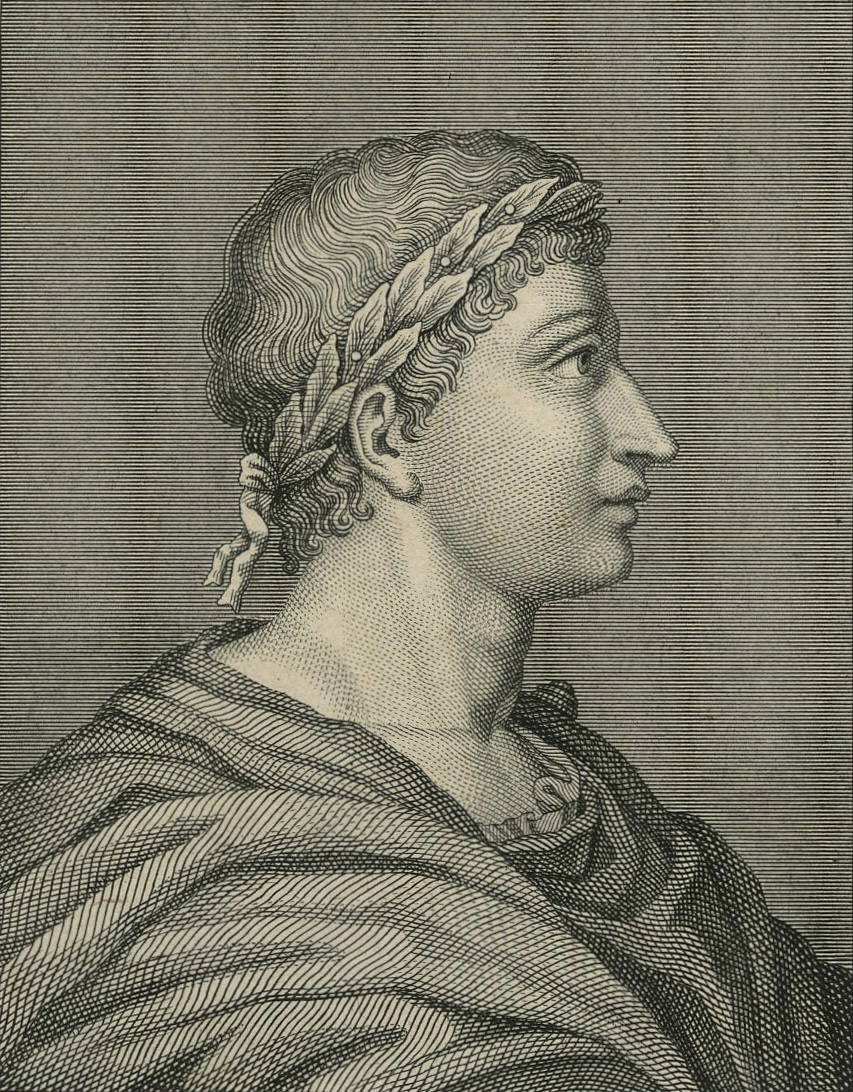Ovid
 Publius Ovidius Naso (; 20 March 43 BC – AD 17/18), known in English as Ovid ( ), was a Roman poet who lived during the reign of Augustus. He was a younger contemporary of Virgil and Horace, with whom he is often ranked as one of the three canonical poets of Latin literature. The Imperial scholar Quintilian considered him the last of the Latin love elegists. Although Ovid enjoyed enormous popularity during his lifetime, the emperor Augustus exiled him to Tomis, the capital of the newly-organised province of Moesia, on the Black Sea, where he remained for the last nine or ten years of his life. Ovid himself attributed his banishment to a "poem and a mistake", but his reluctance to disclose specifics has resulted in much speculation among scholars.
Publius Ovidius Naso (; 20 March 43 BC – AD 17/18), known in English as Ovid ( ), was a Roman poet who lived during the reign of Augustus. He was a younger contemporary of Virgil and Horace, with whom he is often ranked as one of the three canonical poets of Latin literature. The Imperial scholar Quintilian considered him the last of the Latin love elegists. Although Ovid enjoyed enormous popularity during his lifetime, the emperor Augustus exiled him to Tomis, the capital of the newly-organised province of Moesia, on the Black Sea, where he remained for the last nine or ten years of his life. Ovid himself attributed his banishment to a "poem and a mistake", but his reluctance to disclose specifics has resulted in much speculation among scholars.Ovid is most famous for the ''Metamorphoses'', a continuous mythological narrative in fifteen books written in dactylic hexameters. He is also known for works in elegiac couplets such as ("The Art of Love") and ''Fasti''. His poetry was much imitated during Late Antiquity and the Middle Ages, and greatly influenced Western art and literature. The ''Metamorphoses'' remains one of the most important sources of classical mythology today. Provided by Wikipedia
1
